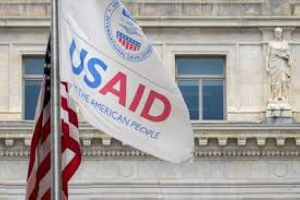Wherever one contacts the officers on private university campuses around the country, the cry one hears is that the public universities are gradually collapsing their businesses little by little. It is not only about the non-denominational private universities that are crying concerning this
characteristic problem, but also the denominational universities are presently angry about how the public universities, which have the support of the government, have been tolerated to turn the whole educational practice into business ventures, encouraging unwholesome competition to get students to enroll in their gigantic campuses.
While we sound an urgent warning for the Government to step in and regulate the number of intakes to ensure that the lecturer-student ratio is complied with and satisfactorily confirmed, there should be a yearning on the side of the three
largest public universities in the country, such as the University of Ghana, KNUST, and the University of Cape Coast, to think about their prestige and ranking in the world to compel them to initiate proper practices that will make them conform to the best practices in the renowned universities in the world.
It is the best practices that will help minimize their numbers and allow the best lecturers to teach, examine, and supervise students instead of relegating their students to the responsibility of inexperienced research assistants.
Seven hundred (600–700) students per class is Dangerous to the Prestige of
any Ghanaian universities. Recent investigations into the leading public universities in the country have shown that the lecturers are no longer the ones marking their examinations and supervising the students. The research assistants do most of these jobs, so one would ask: why do they have to pay those lecturers who have the responsibilities as course leaders if they have relegated the responsibilities to the newly graduated, inexperienced students?
Circumvent the laws: They practice shortcuts with diploma courses. In one of our investigations, we found out that the three-year degree (BSC/BA), which is for those who have already taken two years of diploma certificates at the university, was shortened by these government universities to two years, even though the Ghana Tertiary Education Commission (GTEC) has stipulated the main requirement to be three years.
They do that because they want to circumvent the laws to their advantage to favor them as opposed to the admissions by private universities.
The one-time Diploma courses have been revived:
Formerly, the government universities had stopped offering diploma courses so that private universities could admit these students and train them using their best-qualified lecturers and professors. Now, the latter accepts students who are enrolled in their Diploma courses, and that has affected the intake for Private Universities such that they are collapsing gradually since
the government has no interest in limiting them; many people will lose their jobs sooner or later.
They admit students with D grades that used to be for private universities.
We know that every government has in its manifesto the principle of injecting funds into the private sector so that they will create jobs for the masses. While these illustrious private entrepreneurs are doing their utmost to build the economy of Ghana, some ignorant government appointees, on the contrary, are hand-folding and collapsing the business of their investments.
Two certificates against one:
In some public universities, students who have failed grades in senior High School (SHS) can enroll in their 2-year diploma programs. Upon completion of the 2-year program, if a student achieves a GPA of 2.5 or above and wishes to continue their education there, they will have the opportunity to start at Level 300. This means that an individual who had a failed grade during their WASSCE will have 2 certificates at the end of the 4 years, whereas one who passed their WASSCE will have just 1 certificate. The worst-case scenario for a student enrolled in the diploma program is that they will take 5 years to complete a 4-year program. This entices many students to enroll in public universities.
The Universities have more funds and resources at the expense of the poor
quality education in Public Universities in Ghana:
While the money that comes into these public universities is enormous and makes these universities exuberant and boisterous, on the contrary, it has worsened the education system in Ghana since the unpopular intakes bring the lecturer-student ratio to its zenith. Mass education is not too bad, but since the lecturers don’t do their work well, it encourages some students to become handicapped or poorly trained, especially those who need extra lecture and supervision resources to help them achieve maximum efficiency.
Government drastic solution is needed with immediate effect!
All government universities must limit their first-year students’ intakes with immediate effect so that instead of the 16000 (Enrolment and Graduation Statistics, UG, July 2020) new admissions per year, they should be allowed to take 7000 students each, excluding research students and independent short courses prospective students enroll in. This suggestion is in consonance with what other prestigious universities abroad, such as Harvard, Princeton, etc., are doing.
This will enable the Private Universities to thrive in Ghana and educate those students who did not get the opportunity to get into the Popular Public Universities in Ghana. So far as it is convenient, there should be stringent attempts to make it difficult to get into these public universities so that the rest can easily find their way into private universities that also equally have renowned, qualified lecturers and good infrastructures to accommodate these brilliant students, some of whom need meticulous attention, care, and support to make it. These are not being offered quality assistance in public universities, whose primary aim is to make a profit and obtain exuberant recognition with student numbers.
Opinions of Monday, 8 April 2024
Columnist: Desmond Ayim-Aboagye, Bill Jefferson Appiah



![Prof Adei [L], Ayikoi Otoo, Baffour Awuah and Janet Nabla Prof Adei [L], Ayikoi Otoo, Baffour Awuah and Janet Nabla](https://cdn.ghanaweb.com/imagelib/pics/483/48355074.295.jpg)











